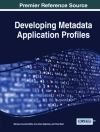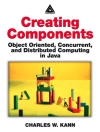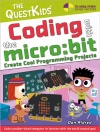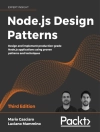Ever since its inception, the Web has changed the landscape of human experiences on how we interact with one another and data through service infrastructures via various computing devices. This interweaving environment is now becoming ever more embedded into devices and systems that integrate seamlessly on how we live, both in our working or leisure time. For this volume, King and Baeza-Yates selected some pioneering and cutting-edge research work that is pointing to the future of the Web. Based on the Workshop Track of the 17th International World Wide Web Conference (WWW2008) in Beijing, they selected the top contributions and asked the authors to resubmit their work with a minimum of one third of additional material from their original workshop manuscripts to be considered for this volume. After a second-round of reviews and selection, 16 contributions were finally accepted. The work within this volume represents the tip of an iceberg of the many exciting advancements on the WWW. It covers topics like semantic web services, location-based and mobile applications, personalized and context-dependent user interfaces, social networks, and folksonomies. The presentations aim at researchers in academia and industry by showcasing latest research findings. Overall they deliver an excellent picture of the current state-of-the-art, and will also serve as the basis for ongoing research discussions and point to new directions.
Cuprins
Web Services.- Classification of Automated Search Traffic.- Semantic Services for Wikipedia.- Context-based Semantic Mediation in Web Service Communities.- An Effective Aggregation Policy for RSS Services.- Evolution of the Mobile Web.- Personalized Service Creation and Provision for the Mobile Web.- Selecting the Best Mobile Information Service with Natural Language User Input.- Location Concepts for the Web.- Ad Hoc Determination of Geographic Regions for Concept#x0040;Location Queries.- Acquisition of Vernacular Place Names from Web Sources.- Social Computing.- Social Web and Knowledge Management.- Setting Access Permission through Transitive Relationship in Web-based Social Networks.- Multiple Interests of Users in Collaborative Tagging Systems.- On the Effect of Group Structures on Ranking Strategies in Folksonomies.- Resolving Person Names in Web People Search.- Studies on Editing Patterns in Large-scale Wikis.
Despre autor
Irwin King is Associate Professor at the Web Intelligence and Social Computing Lab of the Chinese University of Hong Kong, China. He serves as a member of the Engineering Panel with the Research Grants Council (RGC), Hong Kong SAR Government; and is also currently serving as a Vice-President and Governing Board Member of the Asian Pacific Neural Network Assembly (APNNA). In addition, he is also actively involved in the education of students outside the classroom. For example, he has led several ACM Programming Contest Teams to the ACM ICPC World Finals since 2000. His research interests include machine learning, web intelligence & social computing, and multimedia processing.
Ricardo Baeza-Yates is VP of Research for Europe and Latin America, leading the Yahoo! Research labs at Barcelona, Spain and Santiago, Chile, and also supervising the lab in Haifa, Israel. Until 2005 he was the director of the Center for Web Research at the Department of Computer Science of the Engineering School of the University of Chile, and ICREA Professor and founder of the Web Research Group at the Dept. of Information and Communication Technologies of Univ. Pompeu Fabra in Barcelona, Spain. He maintains ties with both mentioned universities as a part-time professor for the Ph.D. program. His research interests includes algorithms and data structures, information retrieval, web mining, text and multimedia databases, software and database visualization, and user interfaces.












